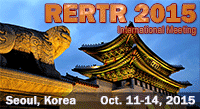Reference Documents Concerning the RERTR Program
President Clinton Fact Sheet on Nonproliferation And Export Control Policy, September 27, 1993
The White House
Office of the Press Secretary
For Immediate Release
September 27, 1993
Fact Sheet
Nonproliferation And Export Control Policy
The President today established a framework for U.S. efforts to prevent
the proliferation of weapons of mass destruction and the missiles that deliver
them. He outlined three major principles to guide our nonproliferation and
export control policy:
- Our national security requires us to accord higher priority to nonproliferation, and to make it an integral element of our relations with other countries.
- To strengthen U.S. economic growth, democratization abroad and international stability, we actively seek expanded trade and technology exchange with nations, including former adversaries, that abide by global nonproliferation norms.
- We need to build a new consensus - embracing the Executive and Legislative branches, industry and public, and friends abroad - to promote effective nonproliferation efforts and integrate our nonproliferation and economic goals.
The President reaffirmed U.S. support for a strong, effective nonproliferation
regime that enjoys broad multilateral support and employs all of the means
at our disposal to advance our objectives.
Key elements of the policy follow.
Fissile Material
The U.S. will undertake a comprehensive approach to the growing accumulation
of fissile material from dismantled nuclear weapons and within civil nuclear
programs. Under this approach, the U.S. will:
- Seek to eliminate where possible the accumulation of stockpiles of highly-enriched uranium or plutonium, and to ensure that where these materials already exist they are subject to the highest standards of safety, security, and international accountability.
- Propose a multilateral convention prohibiting the production of highly-enriched uranium or plutonium for nuclear explosives purposes or outside of international safeguards.
- Encourage more restrictive regional arrangements to constrain fissile material production in regions of instability and high proliferation risk.
- Submit U.S. fissile material no longer needed for our deterrent to inspection by the International Atomic Energy Agency.
- Pursue the purchase of highly-enriched uranium from the former Soviet Union and other countries and its conversion to peaceful use as reactor fuel.
- Explore means to limit the stockpiling of plutonium from civil nuclear programs, and seek to minimize the civil use of highly-enriched uranium.
- Initiate a comprehensive review of long-term options for plutonium disposition, taking into account technical, nonproliferation, environmental, budgetary and economic considerations. Russia and other nations with relevant interests and experience will be invited to participate in this study.
The United States does not encourage the civil use of plutonium and, accordingly,
does not itself engage in plutonium reprocessing for either nuclear power
or nuclear explosive purposes. The United States, however, will maintain
its existing commitments regarding the use of plutonium in civil nuclear
programs in Western Europe and Japan.
Export Controls
To be truly effective, export controls should be applied uniformly by all
suppliers. The United States will harmonize domestic and multilateral controls
to the greatest extent possible. At the same time, the need to lead the
International policy interests may justify unilateral export controls in
specific cases. We will review our unilateral dual-use export controls
and policies, and eliminate them unless such controls are essential to national
security and foreign policy interests.
We will streamline the implementation of U.S. nonproliferation export controls.
Our system must be more responsive and efficient, and not inhibit legitimate
exports that play a key role in American economic strength while preventing
exports that would make a material contribution to the proliferation of
weapons of mass destruction and the missiles that deliver them.
Nuclear Proliferation
The U.S. will make every effort to secure the indefinite extension of the
Non-Proliferation Treaty in 1995. We will seek to ensure that the International
Atomic Energy Agency has the resources needed to implement its vital safeguards
responsibilities, and will work to strengthen the Iaea's ability to detect
clandestine nuclear activities.
Missile Proliferation
We will maintain our strong support for the Missile Technology Control Regime.
We will promote the principles of the Mtcr Guidelines as a global missile
nonproliferation norm and seek to use the Mtcr as a mechanism for taking
joint action to combat missile proliferation. We will support prudent expansion
of the Mtcr's membership to include additional countries that subscribe
to international nonproliferation standards, enforce effective export controls
and abandon offensive ballistic missile programs. The United States will
also promote regional efforts to reduce the demand for missile capabilities.
The United States will continue to oppose missile programs of proliferation
concern, and will exercise particular restraint in missile-related cooperation.
We will continue to retain a strong presumption of denial against exports
to any country of complete space launch vehicles or major components.
The United States will not support the development or acquisition of space-launch
vehicles in countries outside the Mtcr.
For Mtcr member countries, we will not encourage new space launch vehicle
programs, which raise questions on both nonproliferation and economic viability
grounds. The United States will, however, consider exports of Mtcr-controlled
items to Mtcr member countries for peaceful space launch programs on a case-by-case
basis. We will review whether additional constraints or safeguards could
reduce the risk of misuse of space launch technology. We will seek adoption
by all Mtcr partners of policies as vigilant as our own.
Chemical and Biological Weapons
To help deter violations of the Biological Weapons Convention, we will promote
new measures to provide increased transparency of activities and facilities
that could have biological weapons applications. We call on all nations
-- including our own -- to ratify the Chemical Weapons Convention quickly
so that it may enter into force by January 13, 1995. We will work with
others to support the international Organization for the Prohibition of
Chemical Weapons created by the Convention.
Regional Nonproliferation Initiatives
Nonproliferation will receive greater priority in our diplomacy, and will
be taken into account in our relations with countries around the world.
We will make special efforts to address the proliferation threat in regions
of tension such as the Korean peninsula, the Middle East and South Asia,
including efforts to address the underlying motivations for weapons acquisition
and to promote regional confidence-building steps.
In Korea, our goal remains a non-nuclear peninsula. We will make every
effort to secure North Korea's full compliance with its nonproliferation
commitments and effective implementation of the North-South denuclearization
agreement.
In parallel with our efforts to obtain a secure, just, and lasting peace
in the Middle East, we will promote dialogue and confidence-building steps
to create the basis for a Middle East free of weapons of mass destruction.
In the Persian Gulf, we will work with other suppliers to contain Iran's
nuclear, missile, and Cbw ambitions, while preventing reconstruction of
Iraq's activities in these areas. In South Asia, we will encourage India
and Pakistan to proceed with multilateral discussions of nonproliferation
and security issues, with the goal of capping and eventually rolling back
their nuclear and missile capabilities.
In developing our overall approach to Latin America and South Africa, we
will take account of the significant nonproliferation progress made in these
regions in recent years. We will intensify efforts to ensure that the former
Soviet Union, Eastern Europe and China do not contribute to the spread of
weapons of mass destruction and missiles.
Military Planning and Doctrine
We will give proliferation a higher profile in our intelligence collection
and analysis and defense planning, and ensure that our own force structure
and military planning address the potential threat from weapons of mass
destruction and missiles around the world.
Conventional Arms Transfers
We will actively seek greater transparency in the area of conventional arms transfers and promote regional confidence- building measures to encourage restraint on such transfers to regions of instability. The U.S. will undertake a comprehensive review of conventional arms transfer policy, taking into account national security, arms control, trade, budgetary and economic competitiveness considerations.
# # #




